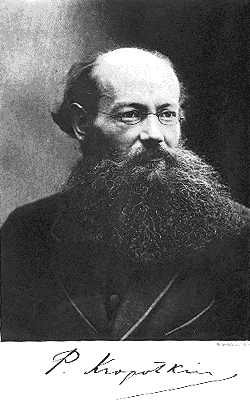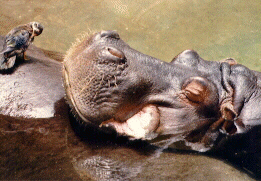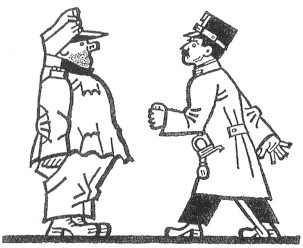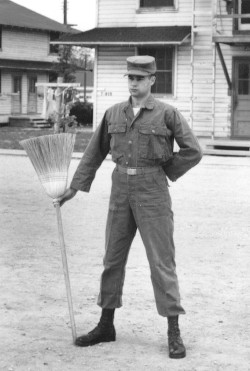The Subtle Texture Of Cooperation
For the HISD Schools of Excellence Conference, 8:30 and 10:30 AM, Wednesday, August 12, 1998, George R. Brown Convention Center
by John H. Lienhard
Mechanical Engineering Department
University of Houston
Houston, TX 77204-4792
713-743-4518
jhl [at] uh.edu (jhl[at]uh[dot]edu)
The matter of cooperation is laced through with mixed messages and false leads. I don't have the slightest doubt that cooperation is what will save public education today. And public education needs saving. A variety of forces, most of them technological, have hurled new questions at your work — questions that are far more complex than they seem to be on the surface.
A question like, "What should be the role of the Internet in tomorrow's classroom," absolutely drowns in the complexities it brings with it. For the Internet is not just playing a role in the classroom. It is altering the very fabric of human discourse as we've known it all our lives. But among its many mischiefs the Internet is also altering our gut-level understanding of the word cooperation. So let's explore the meaning of that word and the important kindred word generosity. I promise you some surprises as we do that exploration.
I'll begin by adding a forbidden word — a word that does not mean what you first might think. I want to begin with a word that puts a special spin on cooperation and generosity. That word is anarchy.
The person who did most to define anarchy as a positive social force was Petr Kropotkin. Kropotkin was born a Russian Prince in 1842. His father trained him for the Tsar's court. But young Kropotkin had read Darwin's new book, Origin of the Species. He wanted to be a scientist. He hated court politics. So he quit and joined a Cossack regiment in Siberia.

Petr Kropotkin, from Memoirs of a Revolutionist, 1899
There he was free to study life in a natural environment. For five years he served as a geographer and naturalist. The Siberian wilds gave him far better lessons in social organization than the Russian court had. He joined the Imperial Geographical Society in 1868 and made more trips. In 1870 he turned down the cushy post of Society secretary and left St. Petersburg again. This time he went to Europe to study anarchy. When you and I hear the word anarchy we think of malicious chaos. But what anarchists point out is that individuals organize society by working together cooperatively and voluntarily.
Imperial Europe didn't like the idea that imperial rule is unnecessary. So Kropotkin spent time in jails. He finally found a haven working in England as a science writer. Meanwhile, Darwin's influence grew. Tennyson called nature "red in tooth and claw." In 1888 Huxley wrote a harsh essay on the survival of the fittest: The Struggle for Existence. We started seeing our lot through distorted Darwinian lenses. We started believing that life is nothing but a blood sport.
Both capitalists and the new Marxists bent Darwin to fit their ends. Kropotkin reacted with articles. He showed that cooperation is our primary survival strategy. He wrote:
Life in societies enables the feeblest animals, the feeblest birds, and the feeblest mammals to resist, or protect themselves from the most terrible birds and beasts of prey;
Kropotkin showed how acts of mercy and mutual support were part of all insect, animal, and human societies. In 1902 he wove his studies into a powerful lucid book. He called it Mutual Aid.

Photo by John Lienhard
Kropotkin had supported the Russian revolution. But, as Marxists turned up their own Darwinian rhetoric, he withdrew. Before his death in 1921 he wrote to Lenin, "Vladimir Ilych, your actions are [unworthy of your ideals]." And today we're learning that Kropotkin's modes of cooperation are far more subtly active in our ecology than we'd once thought. We find new hope in his words,
[A society] which organizes itself without authority is always in existence. [It is] like a seed beneath the snow.
It really is you and I who shape our world and who will save our world. Our cooperation and interaction have far more to say than any form of leadership does. We form our world simply by working together and by cherishing one another.
I believe with all my heart that leadership is an illusion. We choose leaders and hold them up as banners — reflecting our mutual aspirations. But it is not they; it is you and I who determine our future. I once had a violist friend who took over a youth orchestra. One day at lunch I asked him how it was to be a conductor. "Oh, John," he answered,
It's wonderful. It doesn't take long. When you lower your baton in a downbeat a wonderful sound comes at you. Very soon you begin to believe that it's you who's making that glorious sound.
It is you and I who have always made that glorious sound. It is you and I who always will. Make no mistake about that.
And below the communal nature of any enterprise that we create together, there must ride a kind of generosity. That generosity must bind us in the enterprise. The animals tell us about that kind of generosity. Remember Edgar Allan Poe's poem, The Raven? Poe says,
Then this ebony bird beguiling my sad fancy into smiling,
By the grave and stern decorum of the countenance it wore,
I find it very interesting that Poe seems to see a dimension of charity in his sinister bird. And there is such a dimension. A recent American Scientist article talked about ravens trying to survive a cold northern winter. Carrion is rare and precious. What does a raven do when he finds a carcass? Hoard the treasure for himself? Eat his fill and fly away? What really happens is a surprise. The raven circles the find without landing. Then he flies away. A few days later he's back with forty companions and they fall upon the meal. By the time the carcass is finished, over a hundred ravens have shared it. Biologists move into the New England forests to study this action. It's completely reproducible. They're not sure how ravens communicate their find, but their generosity in the midst of hardship is absolute.
Darwin originally suggested just the opposite — that self-sacrifice acts against the survival of the fittest. Now survival proves to be more complex. Seeing to the survival of the group assures survival of the species. The individual also knows that, because he shares, he will eat when a companion finds food.
It is a system based on trust. It's the world we all wish we could live in. These biologists do their work methodically, systematically, measuring a hundred cases with tagged birds. The results come back with unerring consistency. And I go back to read Kropotkin's radical Mutual Aid, published in 1902.
Out of Kropotkin's years in Siberia observing animal behavior, he brought stories about birds sharing in exactly the same way. Then he quoted an ancient Greek source: A sparrow comes to tell other sparrows that a slave has dropped a sack of corn. And they all go off to feed upon the grain. Kropotkin was horrified by the violence of Darwin's early followers. He wrote,
They have made modern literature resound with the war-cry of woe to the vanquished, as if it were the last word of modern biology.
Now biologists are rediscovering what Kropotkin and the ancient Greeks already knew: the fact, obvious once you see it, that generosity is our primal survival strategy.
By the way, Edgar Allan Poe missed the point when he cried to the Raven, "Leave no black plume as a token ... Leave my loneliness unbroken." The poor man could've learned how needless his self-made loneliness really was from that remarkable and generous bird.
So you see how it strikes me as impossible to talk about cooperation without bringing in the related matter of generosity. That cooperative generosity defines the human species. Our survival depends upon it. I think you'll find it helpful if we take a moment to visit an African lake where two anthropologists, Malcom Smith and Robert Layton, have studied a strange kind of fish called cichlids.
The cichlids in the lake come in 200 different species. They're all pretty similar. Only their lips, jaws, and teeth have evolved differently. Some have evolved into fin eaters, some into worm eaters. Some cichlids eat snails. Each cichlid fish has evolved into a tiny niche of the ecology. That kind of subdividing is pretty common. That's why we count 40,000 species of fish, birds, and mammals.
So why haven't we splintered like that? Humankind is only one species. One young hunter can chase down a rabbit. Another can spear a fish. Yet we haven't specialized into one race of rabbit catchers and another of fish spearers. Why are we alike in all but the most minor features — things like hair diameter and skin color? We're not like the fish in that African lake. We've faced every environment on Earth. We've had every chance to divide into specialized subspecies.
The answer lies in the eerie texture of human sharing. We share in complex ways no other animal does. Back in camp, the rabbit chaser and the fish spearer exchange food. We've done that as long as we've existed. Of course it helps that we're very omnivorous. We eat almost anything. If it lives, we've eaten it at one time or another. More important, we've also shared it. But: Our sharing goes far beyond food. For example, most societies have taboos about mating across lines of clan, ethnicity, or race.
Yet the important thing about those taboos is that we break them. Intermarriage is another kind of sharing that holds our species together. Then there's the most important dimension of sharing of all. We share the techniques for gathering food and fulfilling other needs. One cichlid fish had to develop its own specialized jaw for crushing and eating snails. We share our knowledge of snail catching, of rabbit chasing, of fish spearing.
That's what technology is. Techni—ology is the lore — the ology, the science — of technique. Technology is our primary act of sharing. Technology shapes us into one body instead of a thousand subspecies. We're bound in a unique and instinctive tether of generosity with our technologies right at the core of that generosity. We are bound into one system. Kropotkin was right. Generosity and mutual aid is our primal survival mechanism.
We need an example here. So let's look at one form of cooperation you're all involved in. Let's look for a moment at committees. Committees get pretty poor press. A camel, says the old canard, is a horse invented by a committee. In our search for creative excellence, we instinctively look to the individual, not the corporate body. Yet that can mislead us. So let's look at Thomas Jefferson and the way the Declaration of Independence got written.
John F. Kennedy once called a gathering of intellectuals at the White House, "the greatest assembly of brain-power since Thomas Jefferson dined here alone." A genius Jefferson surely was, but he was a complex and inconsistent genius.
Go back to drafts of the Declaration of Independence: They're all in Jefferson's hand, but crossed out and added to as Congress debated. It was a completely cooperative enterprise. Jefferson originally included a passage about slavery:
[The King] has waged cruel war against human nature itself, violating ... a distant people ... carrying them into slavery, or [a] miserable death in their transportation hither...
So far so good, but he went on to say,
[The King] is now exciting those very people to rise in arms among us, and to purchase ... liberty ..., by murdering the people upon whom he also obtruded them.
What a frightfully mixed message! He blames slavery on the King. Then he blames the King for stirring up the slaves. That passage didn't survive.
Nor did a remark about the British: "...manly spirit bids us to renounce forever these unfeeling brethren." Line by line, the excesses got pared away. Lesser changes gradually establish the verbal rhythm and balance that moved the Englishman, G.K. Chesterton, to write,
America is the only nation ... founded on a creed. That creed is set forth with dogmatic, and even theological lucidity in the Declaration of Independence, perhaps the only piece of practical politics that is also theoretical politics and also great literature.
But it is literature that flowed from both Jefferson and Congress. Another majestic document, our Constitution, followed a few years later. It was the work of Congress and a steering committee.
The King James translation of the Bible was made by a Royal task force with over fifty members. Now there is a perfect formula for mediocrity! Yet the King James Bible stands today as the English language at its finest. So what about that horse designed in committee?
There is truth in that image. Creative excellence must come to rest on individual commitment. But the King James Bible and the Constitution were both put together by individuals cooperating on a product they believed in passionately. When cooperation and compromise are undertaken with that seriousness of purpose, great works follow. If we said less to our students about the Famous Names and more about that powerful process of determined cooperation, we'd see more greatness in all our institutions.
So what is the enemy of accomplishment when we work together? It is to forget that we have to be anarchists. The enemy of accomplishment is obedience. With obedience, cooperation goes out the window. I'd better explain that. Late in the winter of 1974, I arrived at the Serbian Orthodox Cathedral in Belgrade, Jugoslavija, covered with snow. I was singing there with the Patriarch's Oktet and I'd made it to the service despite a blizzard. One old singer, seeing I'd come miles in bad weather, nodded and said to me, Dobri Vojnik! That was Serbian for Good Soldier. The Slavic term Dobri Vojnik is seldom uttered seriously. It suggests one who is slavishly, and even foolishly, devoted to duty.
Dobri Vojnik went international in 1921 when a radical Czech named Jaroslav Hašek wrote a book that was an instant classic, a WW-I novel titled The Good Soldier Švejk. Hašek's masterpiece tells of the innocent Švejk, Mr. Everyman, haled into the army on the side of the Germans.
Švejk looks to be the totally cooperative soldier — filled with aggressive enthusiasm. He obeys all orders just as they're issued, completely and without question. Of course no army can exist when its troops do that. Švejk just about brings the army to its knees.
Švejk is not the only such literary hero. Benjamin Britten's opera Billy Budd tells of a sailor who radiates good-hearted obedience. In the end the British Navy instinctively responds to Budd by destroying him.
Švejk, on the other hand, knows perfectly well what a destructive force his obedience is, and he wields it like a scalpel. In that, he echoes the Taoist philosophy of "yield and overcome." He knows perfectly well that unquestioning cooperation will destroy your enemy.
It was obvious to me during my time as an enlisted man that armies absolutely depend on people who disobey orders. No authoritarian organization can avoid issuing orders that're muddled and self-defeating. Armies depend on people who say No to authority. When soldiers fail to do so, the result might be simple confusion, or it might be a major atrocity. God help any lieutenant whose NCOs haven't the wits to cover his blunders by disobeying. The old MASH series on TV played that theme with stinging accuracy.
Think for a moment what it means to issue an order. It is to specify an outcome, to predict a future. But modern science makes it crystal clear that the future cannot be predicted. Tiny imperfections in an initial state of affairs always magnify in time. That's why we can't predict weather in the long term. That's why we can't predict our own futures. And that's why any commander had better hope his subordinates have the wits and courage to disobey.
Yet organizations tell their people to pull together, embrace corporate goals, and support common themes. Organizations routinely perish because of that. Hierarchical systems are doomed without disobedient and dissident members.
So read The Good Soldier Švejk as you try to shape the school system. To survive, it must run on the creative, out-of-step individualism of its members. Disobedience is the primary survival trait of any organization.

From Osudy dobrého vojaka Švejka za svêtové války, 1921
Now back to my theme of cooperation. Let me ask you: Was Švejk cooperating with the army? Of course he wasn't! That kind of cooperation is what causes committees to come up with camels when they set out to design horses. True cooperation is far more demanding. It requires us to have a moral center of gravity.

The author as obedient soldier,
Ft. Monmouth, 1954
Let me offer you an even more complex example of cooperation — let's look at the disturbing riddle of the Prisoners' Dilemma: Two prisoners have committed a crime. Now they're held in separate cells. Each can either confess and plead for a light sentence, or claim innocence and blame the other. If one blames and one confesses, the blamer fares well and the confessor suffers. If each blames the other it goes hard for both. In aggregate, they do best when each confesses.
Now: You and I are those prisoners. Oh, we may not be in jail, but the same moral dilemma comes up all the time in everyday life. I think of times two students have handed me identical tests. How do students behave when you confront them with that kind of evidence?
The Prisoner's Dilemma is mired in questions of honesty and compassion — as well as self-interest. And remember: Most participants have to deal with each other afterward. Since the pair does best when both confess, the Dilemma blurs the line between the best interests of the individual and of society.
Philosophers, psychologists, and mathematicians have all wrestled with the implications of the Prisoner's Dilemma. Now computer modelers and animal behaviorists are in the act. They set up dizzying arrays of games and tests to learn how both people and animals react to such a bind.
Those experiments make one thing clear. In the long run, I do best when I confess — when I opt for cooperation. But when I do, I lay society open to the one person who exploits things to his own advantage. That person poses a terrible threat to cooperative behavior. (Notice something here, by the way: Notice that the Raven has solved the Prisoner's Dilemma.) The point is that cooperation is not only difficult behavior, it's also risky behavior. But it remains our best bet.
Now, I said when I began that my message this morning would be complex. The subject of this meeting is unity. And you can't have unity without cooperation. But cooperation is not the simple matter that it first appears to be. Cooperation is a discipline. Make it an easy way out, and you'll harm education.
To you administrators, I cannot say too strongly: The teacher who questions you and argues with you is not the enemy. The person who'll bring you down, and who'll bring the students down with you, is the teacher who learns your wishes and serves those wishes. To you teachers, I cannot say more strongly: Cherish each other. Serve your colleagues' best interests and, like the raven, you'll all prosper.
Our theme at this meeting is unity. And unity means joining with one another in a common high purpose. As we work that purpose out, let's remember the King James Bible committee. Let's remember the framers of the U.S. Constitution. Those people were unified in purpose but never, never, walked in lockstep. They fought, they argued, and they compromised.
In the end, Ben Franklin, his skin sore from the chafing of compromise, said of our new constitution, "Altogether it is as good a Constitution as we could have produced." He did not come out claiming to have forged a masterpiece. But it was a masterpiece, because it had every member's soul woven into it.
Now, with all that by way of introduction, let me get to my point: We certainly need to seek unity through cooperation. But I hope it's clear at this point that I do not regard cooperation as easy business. Real cooperation, the kind we enter with our individuality, our minds, and hearts all in high gear — that kind of cooperation is a discipline.
But it is also an adventure. Think for just a moment what it will mean if we can figure out how to engage each other all the way — not just on the surface. If you and I can manage that with one another, then maybe we can do it with our students. And that is what we're all here for in the first place.
SOME SOURCES
Most of what I say here, I've said at other times, and in other ways, on my daily radio program, The Engines of Our Ingenuity. The program is distributed without charge on the NPR Satellite Feed to any station that wishes to air it. A full set of transcripts and a searchable index may be found on the Engines website. The transcripts include a great deal of reference material. A few sources specific to what I have said here follow:
Kropotkin, P., Mutual Aid: A Factor of Evolution, (with an introduction by George Woodcock), New York: Black Rose Books, 1989.
See also the Encyclopaedia Britannica article on Kropotkin.
Heinrich, B., and Marzluff, J., Why Ravens Share. American Scientist, Vol. 83, No. 4, July-August, 1995, pp. 342-349.
Smith, M. T. and Layton, R., On Human Nature. The Sciences, New York: The New York Academy of Sciences, January/February 1989, pp. 10-12.
Ellis, J. J., Editing the Declaration. Civilization, July/August 1995, pp. 58-63.
A good account of the King James Bible translation is to be found under "Bible" in the 1911 Encyclopaedia Britannica.
Hašek, J., The Good Soldier Švejk and His Fortunes in the World War (tr. Cecil Parrott). New York: Thomas Y. Cromwell Co., 1974.
See the Wikipedia page on The Good Soldier Švejk. The book may be read online in several places. See, e.g. this site.
Beardsley, T., Never Give a Sucker an Even Break. Scientific American, October 1993, p. 22.
Frohock, F.M., Rational Association. Syracuse: Syracuse Univer-sity Press,1987.